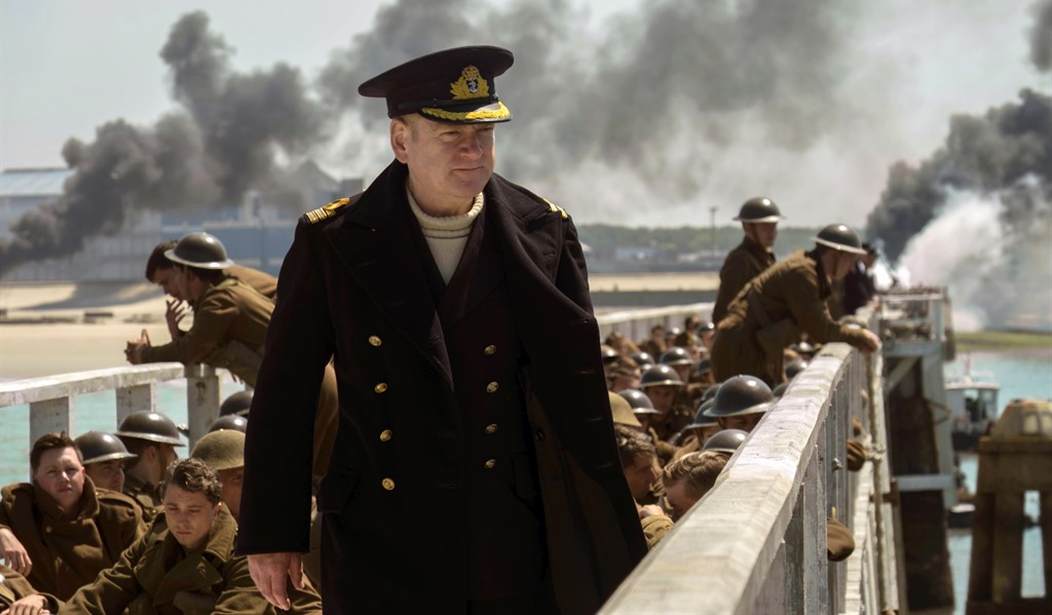Roman historian Titus Livius (Livy) would love the new World War II movie, Dunkirk, because Livy believed: “the study of history is the best medicine for a sick mind.”
Livy was not the only prominent Roman thinker to value historical studies. Marcus Tullius Cicero—one of Rome’s finest orators—concurred: “To not know what happened before one was born is to live as a child.” And America’s founding father James Madison agreed with the Romans, warning: "A well-instructed people alone can be permanently a free people."
Suffering from a mental illness; immature; or in danger of serfdom—is how these three renowned thinkers describe a citizen who is historically illiterate. Alarmingly, then, polls show that the average American adult has a very weak grasp of history and the majority of Americans do not fully understand the Constitution or the three branches of government.
History textbooks in American classrooms are becoming so politically correct that some states are formally inviting parents to challenge the texts. On June 26, Florida Gov. Rick Scott signed HB 989 Instructional Materials Bill, empowering parents to challenge classroom materials that include revisionist (i.e. inaccurate) accounts of U.S. and world history.
The good news? British-American film director Christopher Nolan (famous for his Batman movies) has reinvigorated Americans with a zeal for historical accuracy.
Nolan’s new blockbuster hit, Dunkirk, serves history, straight-up. There are no rocks in this drink. No training wheels on this bike. “Intense” is not an intense-enough word to describe Dunkirk. It’s simply a tidal wave of truth.
Recommended
Operation Dynamo
Dunkirk is like one huge wave that crashes in on you for 106 minutes. You want to cry, choke, run. And then, it’s over. 106 minutes felt like 16—and you immediately want to watch it again.
The story follows Allied soldiers—many of them 18- and 19-year-old boys—who are hopelessly isolated on the beaches of Dunkirk in the spring of 1940. The soldiers’ challenge, according to Nolan: “It really was a question of… [could they miraculously escape] before having to either surrender or be annihilated by the Germans? That was the choice: surrender or annihilation.”
Nolan’s film is a hit with the general public but he has many critics in the media who are upset that the soldiers in his film are mostly male and white.
Feminist commentators like Marie Claire’s Mehera Bonner are fuming that Nolan dared to tell the story of Dunkirk in a factual way. She wrote: “Dunkirk felt like an excuse for men to celebrate maleness… If Nolan’s entire purpose is breaking the established war movie mold and doing something different—why not make a movie about women in World War II?”
First, Ms. Bonner, this is a free country and you may certainly make such a movie yourself. Second, it was men who fought on the front lines in World War II. But the real question is: why make such a puerile comment? A movie does not detract from women merely because it features men.
Truth is not demeaning to women. Re-writing history is demeaning because it minimizes the value of women—like my grandmother who served in World War II as a nurse while dating a Marine who would eventually become my grandfather. She fought a different battle on the Homefront while also enduring the heartache of missing her beloved and not knowing—sometimes for weeks—whether he might be injured, or even dead. But she never called herself a soldier.
In Dunkirk, Nolan also made the supposedly controversial decision to portray good men as good. Moreover, Nolan encourages us to admire moral courage rather than to see it—as many modern directors would—as weakness or naiveté. In Dunkirk, there’s no Frank Underwood; no anti-hero who is glamorized for clawing his way to raw power. Instead, we see many men of all ages making real sacrifices; risking all they have to help others and protect their country.
We don’t see—but we know—there were many women making sacrifices too. Women whose husbands, sons and brothers took their small recreational and fishing boats (around 700 boats in total) out over the treacherous English Channel waters—and braved bombs falling from the sky—to save roughly 338,000 troops in a mission called Operation Dynamo.
In a closing scene where a fleet of small boats cruises in to rescue the soldiers, we see one woman standing on one boat, alongside an all-male crew. Her shoulders are thrown back and her head is high. The only thing moving about this brave, statuesque soul is her long, dark skirt—beating in the wind. You get the sense that she is a single or recently married woman with no children yet under her care; a woman who risked her life to offer troops first aid and comfort. Earlier in the film, we see another woman on a larger boat—a professional nurse in uniform—offering soldiers toast and tea.
It’s apparently hard for liberals to watch a movie like Dunkirk because it tells the truth about men and women—that they are different and that these differences allow society to flourish even amid the chaos of war. The story of Operation Dynamo, told factually, shows that when ordinary men and women with strong moral compasses do that thing at which they are respectively better (fighting vs. nourishing) miracles can happen.
Few words are uttered in this movie. The characters’ actions speak for them. You walk away from Dunkirk motivated to be noble and courageous. And that is the power of telling truthful history.

























Join the conversation as a VIP Member